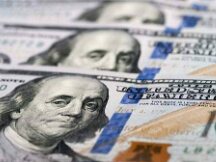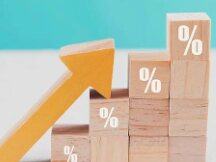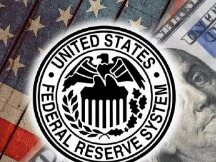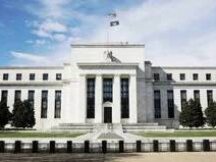The Fed was quicker and the danger appeared.
This morning, the Federal Reserve finally released the long-awaited report on the financial markets discussions.
Data details do not differ from market expectations, and the recent decline in the U.S. stock market resumed soon after the minutes were released.
But I always thought that the return and the peace were only temporary.
Let's first see what the Fed's policy is.
In addition to this information published by the Federal Reserve, we also have access to various market information and analysis. In general, the following conclusions can be drawn:
Unless there are special surprises, the Fed can accelerate its purchases and not buy the contract in March of next year, and can then have three rates of increase until next year.
What is surprising here is that even though the cost of labor has been lower than industry expectations or inflation is increasing. There is not enough data on current labor costs to determine trends over the next few months, but in my opinion, inflation is unlikely to drop in the next few months.
Therefore, in general, there is a perception that financial viability will start to decline when there is a start just a few months before gold enters the financial markets in any significant way. On the other hand, the gauge on US commodities was too high when the Fed's chart shone in the financial sector over the next few months. The next one can be speculative and not speculative, but long. - layout time. So I also argue that the US stock market is very volatile and risky.
Reading the reviews on the internet, I was a little surprised. Anyone who has been in the Chinese door-to-door business for the past ten years is right, and anyone who has sold American products short in the past ten years is right. This face to face led to a constant change of sentiment, and a major loosening of financial policy created a big bubble: how long will this bubble last?
First, let's take a look at the home situations. Although China has announced tax easing measures, large real estate companies have reported bad news in recent days, including large real estate companies with branches in Hong Kong and Shanghai, as well as those in Shenzhen.
According to new data from the National Bureau of Statistics, sales of level 1 homes fell 0.2% month-on-month, while those in Beijing, Shanghai, Guangzhou and Shenzhen were down 0.2% and 0.1 %, respectively. 0.5% and 0.2%. Prices for new homes and used properties in the City Level 2 both fell 0.4% from the previous month, and the decline was 0.2 points and 0.1%. Sales of new buildings in 3rd year cities fell 0.3%, the same level as last month.
Note: real estate is not as good as legal records.
In the US stock market, Bezos, Zuckerberg, and Musk are all sellers, and Buffett has more money than last year's record.
This omen seems to be an ominous omen before the storm draws near.
I also think there are other points that we need to consider. In recent news, more "flexible work" has started to appear in Korea, and there are advertisements that attract audiences to the news that they work three times a day. - Time.
The actual data that emerged in this case is relevant to our previous experience.
So, over the next month or year, I think the first challenge for the average trader is to avoid risk and have enough money.

Scan QR code with WeChat






























